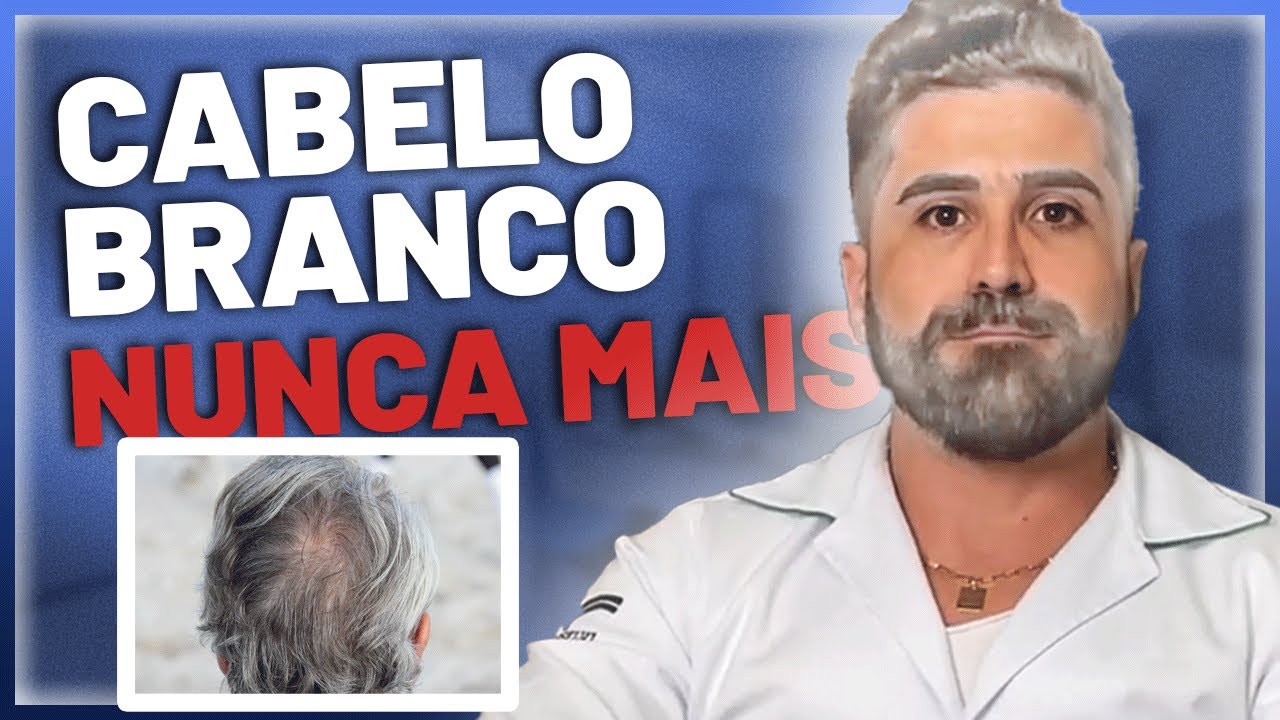How To Naturally Reverse Premature Graying of Hair
Summary
TLDRThis video discusses two key factors to prevent premature graying of hair: copper deficiency and the accumulation of hydrogen peroxide due to aging. It suggests reducing stress and consuming copper-rich foods like seafood, mushrooms, and grass-fed beef liver to boost the enzyme tyrosinase, responsible for hair pigmentation. Additionally, increasing catalase through foods like cruciferous vegetables and grass-fed liver can slow hydrogen peroxide's bleaching effect. The video also touches on the benefits of a higher fat diet for catalase production and overall hair health.
Takeaways
- 🧓 Premature graying of hair can be prevented by addressing key factors beyond genetics, including stress and diet.
- 🧬 Genetics and epigenetics both play roles in graying, with epigenetics allowing for interventions that can delay the process.
- 🧪 Copper is essential for maintaining hair pigment, and deficiency in copper can lead to premature graying.
- 🌿 High levels of cortisol from stress can deplete copper, leading to a lack of the enzyme tyrosinase needed for melanin production.
- 🍄 Foods rich in copper, such as seafood, mushrooms, and organic grass-fed beef liver, can help maintain hair color.
- 🧖♂️ Reducing stress through exercise and lifestyle changes is crucial for preventing premature graying.
- 🧴 Hydrogen peroxide buildup in hair shafts contributes to graying; the enzyme catalase breaks it down.
- 🥦 Foods high in catalase, like grass-fed beef liver, cruciferous vegetables, and microgreens, can reduce hydrogen peroxide buildup.
- 🍽️ Incorporating a nutrient-dense ketogenic diet can support higher catalase levels and overall hair health.
- 🧫 Maintaining a healthy immune system and avoiding stressors like smoking, alcohol, junk foods, and refined carbs are vital for hair health.
Q & A
What is the primary goal of the video?
-The primary goal of the video is to show viewers how to prevent the premature graying of hair.
What role does genetics play in the graying of hair?
-Genetics play a part in the propensity to get gray hair, but epigenetics, which are lifestyle factors, also significantly influence the onset of gray hair.
Why is copper important for hair coloration?
-Copper is a trace mineral that is essential for the pigment in hair and the enzymes that allow that pigment to occur, helping to maintain natural hair color.
How does stress contribute to premature graying of hair?
-High levels of stress can lead to increased cortisol, which uses up copper enzymes. This can result in a deficiency of copper, affecting the enzyme tyrosinase that is needed for melanin production and leading to premature graying.
What is the recommended approach to increase copper intake?
-The recommended approach is to consume more high-copper foods, such as seafood, mushrooms, and organic grass-fed beef liver. It's advised not to take a standalone copper supplement without zinc, maintaining a 1 to 10 ratio of copper to zinc.
What is the role of the enzyme catalase in relation to hair graying?
-Catalase is an enzyme that naturally breaks down hydrogen peroxide, which can cause a bleaching effect on hair. Having enough catalase can slow down this effect and help maintain hair color.
What foods are high in catalase?
-Foods high in catalase include grass-fed beef liver, cruciferous vegetables, and sprouts or microgreens.
How can a higher fat diet potentially impact catalase levels?
-A higher fat diet, such as the ketogenic diet, may help increase catalase levels, which can be beneficial in slowing down the aging process and maintaining hair color.
What is the connection between catalase and lifespan according to the research study mentioned in the script?
-The research study on mice found that stimulating the gene for catalase led to a significant increase in lifespan, possibly due to its antioxidant properties and its role in protecting mitochondria from free radical damage.
What are some lifestyle changes suggested in the video to prevent premature graying of hair?
-The video suggests reducing stress, maintaining a healthy diet with high-copper and catalase-rich foods, avoiding smoking and alcohol, and staying away from junk foods, sugars, and refined carbohydrates.
What is the significance of hydrogen peroxide in the aging process of hair?
-Hydrogen peroxide accumulates in the hair shaft as one ages, causing a bleaching effect that can lead to hair losing its natural color.
Outlines

This section is available to paid users only. Please upgrade to access this part.
Upgrade NowMindmap

This section is available to paid users only. Please upgrade to access this part.
Upgrade NowKeywords

This section is available to paid users only. Please upgrade to access this part.
Upgrade NowHighlights

This section is available to paid users only. Please upgrade to access this part.
Upgrade NowTranscripts

This section is available to paid users only. Please upgrade to access this part.
Upgrade NowBrowse More Related Video

NOS MAS CANAS COME ESTO Y EVITALAS - Oswaldo Restrepo RSC

Reversible Causes of Premature Hair Graying

REVERSE GRAY HAIR with these 3 Supplements!

Faça essas 3 COISAS e NÃO tenha mais CABELOS BRANCOS *3a vai te SURPREENDER*

Gdy masz niedobór B12, na skórze i ustach pojawi się to

White Hairs to Black Hairs | kam Umar me Safed balon ka ilaj | Kam umer me Baal safed hone ke karan
5.0 / 5 (0 votes)